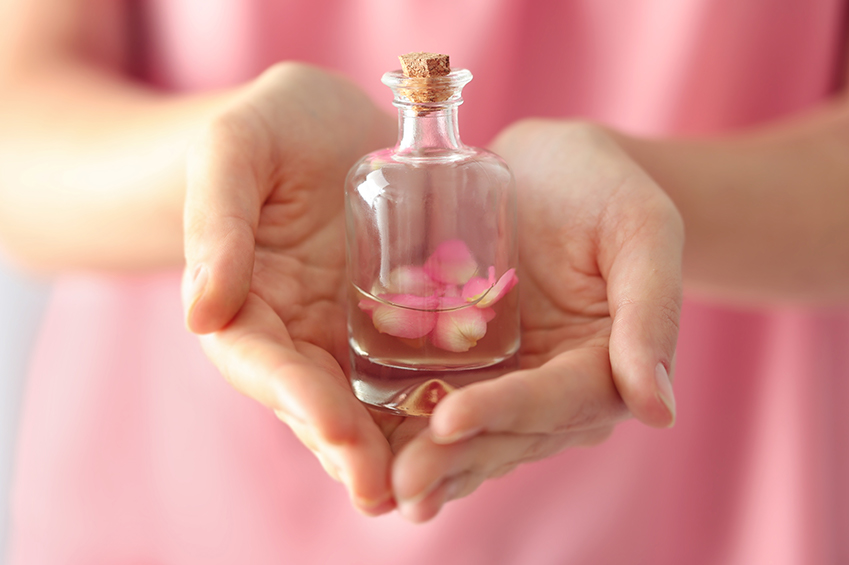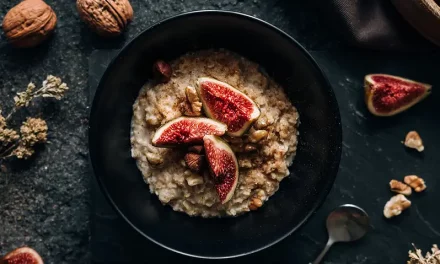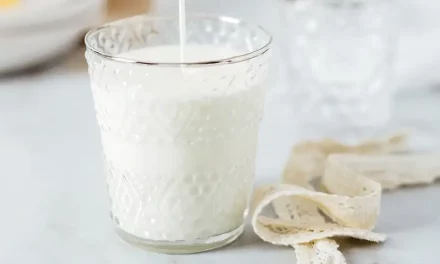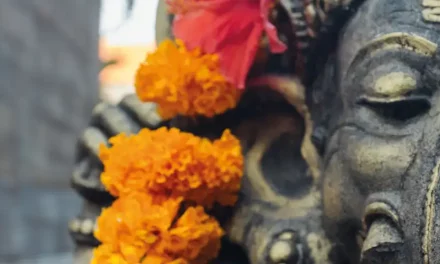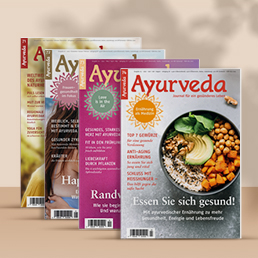The rose, queen of flowers, not only fascinates with its beauty. Rose water is currently a popular beauty trend and also has many uses in Ayurvedic cosmetics and cooking.
Production of rose water
Rose water is a hydrolate (condensed water vapour) that is a by-product of the production of rose oil. It contains the water-soluble ingredients of the rose blossom, the fat-soluble ingredients are contained in the rose oil. Pure rose water contains no alcohol, fats or acids, has a very mild effect and is versatile. The hydrolate is a sought-after ingredient in natural cosmetics and can support all skin types. The essential water contains vitamins and natural antioxidants, but should not be exposed to direct sunlight. On an emotional level, the mild scent of rose water opens the mind and heart and provides relaxation.
Quality of rose water
It is important to make sure that the rose water is pure and of good quality from organic cultivation. Food grade rose water should be pure and without additives. Cosmetic rose water should contain little or only a very small amount of alcohol and no other additives. Rose water is ideal for use in Ayurvedic skin care. Toning face lotion as well as compresses or steam baths with rose water are suitable for all three doshas.
What problems does the skin of the individual constitution types have and how can rose water support the care of the different skin types?
Vata-Skin
Vata skin is prone to dry, rough or cracked areas, wrinkles, dry rashes and eczema. It needs a lot of attention in the form of mild cleansing and intensive care. After cleansing, the skin can be toned with rose water. This provides additional moisture and clarifies the skin’s appearance. Cotton pads moistened with the purest rose water serve excellently as soothing compresses for dry and slightly reddened eyes.
Pitta-Skin
Pitta skin is prone to redness, inflammation, rashes, itching and blemishes. The skin of the Pitta constitution likes to be cooled and soothed. Here, rose water has a harmonising effect on all the above-mentioned symptoms. In the morning and evening, the skin should be thoroughly cleansed and then toned with rose water and moisturising aloe vera gel.
Kapha-Skin
Kapha skin tends to have an oily, shiny surface, impurities and sebaceous deposits. Relief can be provided here with steam baths or warm compresses and the addition of herbs and rose water. Kapha skin needs regular, effective cleansing. Rose water has non-comedogenic (not clogging the pores) properties, mattifies oily skin and provides freshness.
Other possible uses:
- Rose water can provide relief from sunburn and insect bites due to its cooling effect.
- In the hair lengths, rose water has a moisturising effect and gives a light shine and pleasant fragrance
- It soothes the scalp and can relieve itching and dryness.
- A hand bath with rose water soothes stressed skin and reduces redness.
- Aromatherapy: The pleasant scent of rose water brightens the mood and invites you to dream, relaxes and refreshes. Add one to two tablespoons of rose water to the bath water or spread a few drops on the pillow.
- Can also be used as an all-natural perfume.
A word in conclusion: pure rose water is very aromatic. So it is best to try out in advance which dosage is pleasant for the individual. Often, just a few drops are enough. The same applies to the use in aromatherapy. When using rose water, less is often more!

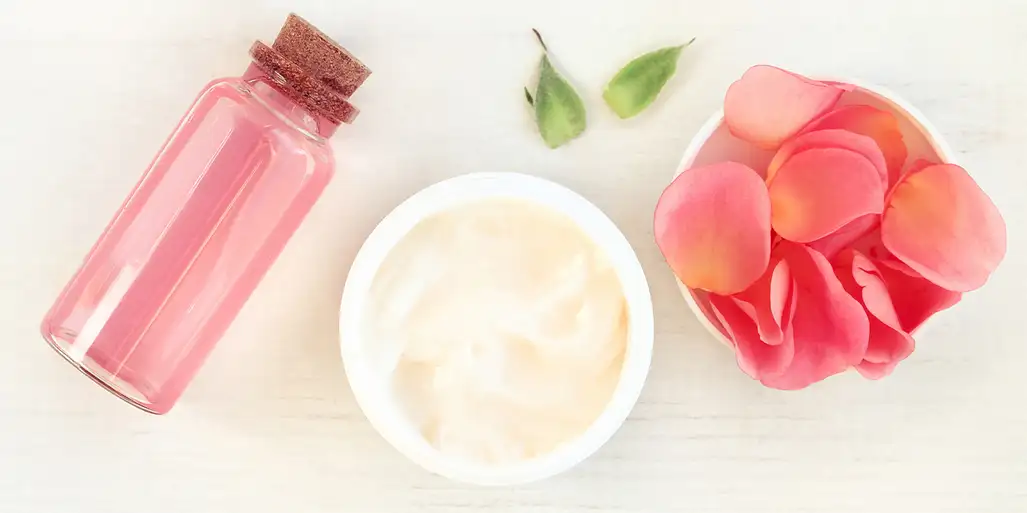 © iStock.com / Anna-Ok
© iStock.com / Anna-Ok 